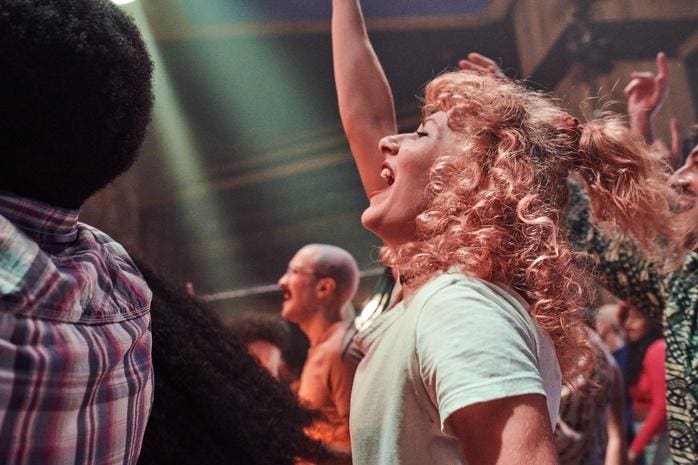Monika Ilieva is the co-founder/CEO of Cafe De Anatolia (Record Label & Artists Management Agency & Media News Agency).
Social media has emerged as a powerful tool for activism, providing a platform for individuals and movements to raise awareness, ignite conversations and drive societal change. Numerous activists have harnessed the potential of social media to challenge norms, demand equality and foster a more inclusive environment. In this article, I will explore the profound impact of social media on activism in the music industry, highlighting the ways in which it has amplified voices and propelled the fight for equality.
1. Building Online Communities And Solidarity
Social media platforms such as Twitter, Instagram and TikTok have facilitated the creation of vibrant online communities centered around feminist activism in the music industry. Hashtags like #TimesUp and #WomenInMusic have connected artists, activists and fans, providing a space to share stories, experiences and resources. These communities have not only fostered a sense of solidarity but have also served as a catalyst for collective action, urging for change within the industry.
For example, the #MeToo movement gained momentum on social media, with women in the music industry sharing their experiences of sexual harassment and assault. This online activism translated into real-world initiatives such as the Time’s Up movement and the formation of groups like the Women in Music organization.
2. Raising Awareness And Challenging Stereotypes
Feminist activists on social media have leveraged their platforms to raise awareness about issues of gender inequality, representation and sexism in the music industry. Through thought-provoking posts, articles and videos, they have highlighted the underrepresentation of women, the prevalence of gendered stereotypes, and the challenges faced by female artists and industry professionals. By shedding light on these issues, they have pushed for a more inclusive and diverse music landscape.
An example of this is the ongoing discussion around the gender pay gap in the music industry. Social media campaigns have drawn attention to the disparity in earnings between male and female artists, leading to important conversations and calls for change.
3. Holding Institutions And Artists Accountable
Social media has given feminist activists a powerful tool to hold music institutions, record labels and artists accountable for their actions and statements. When instances of sexism or inequality arise, activists can quickly mobilize and demand change through trending hashtags, online petitions and public call-outs. This increased transparency and accountability have helped push the music industry to confront its shortcomings and work toward more equitable practices.
One example I have witnessed is how when a music festival lineup lacks gender diversity, social media outrage often follows, prompting organizers to address the issue and make changes in subsequent years. In 2020, the Coachella Valley Music and Arts Festival faced criticism for its lack of gender diversity among headliners. Social media users and activists took to platforms like Twitter and Instagram to express their disappointment and call for greater representation of women in the festival’s top-billed acts.
4. Amplifying Marginalized Voices And Artists
Social media has been instrumental in amplifying the voices of marginalized artists who have historically been overlooked or silenced. It has provided a platform for artists from diverse backgrounds, including women of color, LGBTQ+ artists and artists with disabilities, to share their stories and music directly with their audience. By bypassing traditional gatekeepers, social media has empowered these artists, allowing them to build their fan bases, connect with like-minded individuals and challenge industry norms. Take, for example, the rise of queer artists who have found a supportive audience on social media platforms, enabling them to gain recognition and success on their own terms.
5. Mobilizing Offline Action
I believe one of the most significant impacts of social media on activism in the music industry is its ability to mobilize offline action. Online campaigns and conversations have translated into real-world initiatives, protests and policy changes. For instance, the Grammy Awards, in response to public criticism and online activism, revamped their nomination and voting processes to address gender and racial disparities. Social media has become a catalyst for tangible change by galvanizing supporters and putting pressure on industry gatekeepers.
How To Take Action
There are several ways that business leaders in the music industry can act to further align themselves with these changes and support women and minorities in this sphere:
• Show Public Support: Business leaders can actively and openly support women and minorities in their companies and industry by using their platforms on social media to amplify diverse voices, champion inclusive initiatives and publicly endorse organizations that promote equality. By publicly expressing your commitment to the cause, you can help create a supportive and inclusive environment for all.
• Show Private Support: In addition to public support, leaders can implement concrete measures within their own companies or spaces to address concerns raised on social media. This can include conducting diversity and inclusion training for employees, establishing mentorship programs for underrepresented groups, ensuring equal pay and opportunities for all, and actively seeking out diverse talent in hiring processes.
Social media has revolutionized activism in the music industry, empowering individuals to challenge norms and advocate for change. By implementing these best practices, business leaders can contribute to a positive transformation in the music industry, fostering a culture that values diversity, equality and inclusivity.
Forbes Business Council is the foremost growth and networking organization for business owners and leaders. Do I qualify?
Read the full article here





